- Author Arianna Cook [email protected].
- Public 2024-01-12 17:55.
- Last modified 2025-01-23 09:40.
What vitamins are contained in pumpkin, why it is considered a dietary product, how it acts on the body and in what cases it can be harmful, you can find out from this article. The pumpkin plant belongs to melons and gourds. The homeland of the pumpkin is Mexico, where it began to be grown more than three thousand years BC. It appeared in European countries thanks to the Spaniards, who brought it in the 16th century. Currently, pumpkin species are cultivated in most countries of the world.
Calorie content of pumpkin
per 100 g is 22 kcal, as well as:
- proteins - 1 g
- fat - 0.1 g
- carbohydrates - 4, 4 g
The pumpkin is a large, fleshy oval or spherical fruit that is covered with a thick, smooth skin. The pumpkin contains numerous seeds and juicy pulp. The pumpkin variety determines not only the color of the peel and pulp, but also the weight and shape of the fruit.
Vitamins and trace elements in pumpkin
Pumpkin fruits contain 5-6% sugars (in the best varieties up to 20%), carotene, starch, vitamins B1, B2, B5, B6, C, PP, E, pectin substances, fiber, organic acids, calcium, iron salts, magnesium, as well as the rare vitamin T, which is involved in accelerating metabolic processes, blood clotting and platelet formation. Pumpkin is especially rich in potassium salts.
Pumpkin contains five times more carotene than carrots and three times more than beef liver. That is why ophthalmologists recommend the use of pumpkin and pumpkin juice for people with visual impairments.
Pumpkin - useful properties
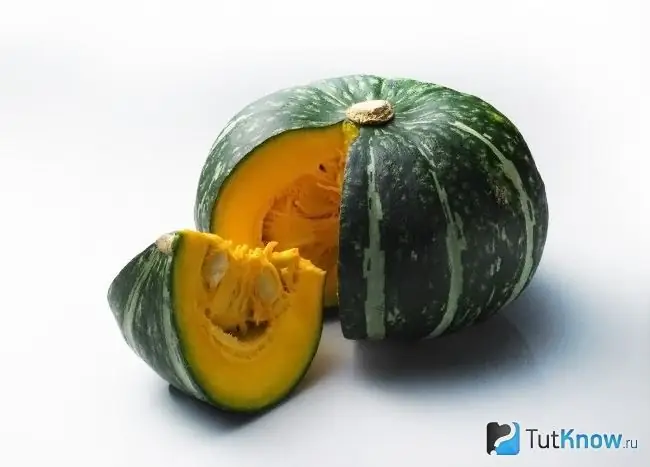
Pumpkin, like squash, is the best vegetable for a diet. For those who want to lose weight, pumpkin porridge will be an excellent solution - with its help, metabolism is normalized and toxins are removed from the body.
Eating pumpkin will be a good prevention of acute and chronic nephritis, as well as pyelonephritis. With the help of potassium salts, pumpkin has an excellent diuretic effect.
Pumpkin dishes will be useful for people suffering from hypertension and cardiovascular diseases.
In diabetes, the components of pumpkin regenerate damaged pancreatic cells and increase the level of beta cells that produce insulin. For chronic constipation, kidney failure, inflammation of the urinary tract, nervous disorders and hemorrhoids, it is useful to drink fresh pumpkin juice. Pumpkin will help flush salt and water out of the body without irritating kidney tissue.
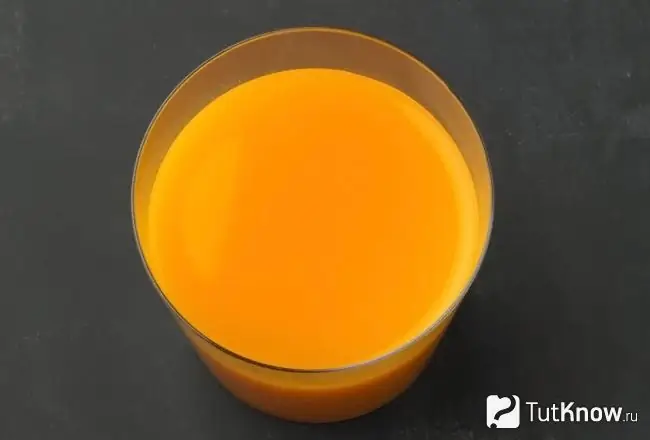
For insomnia, it is recommended to use pumpkin juice or pumpkin broth with honey. With the help of a decoction of pumpkin pulp, you can easily quench thirst and reduce fever in patients.
Pumpkin seeds
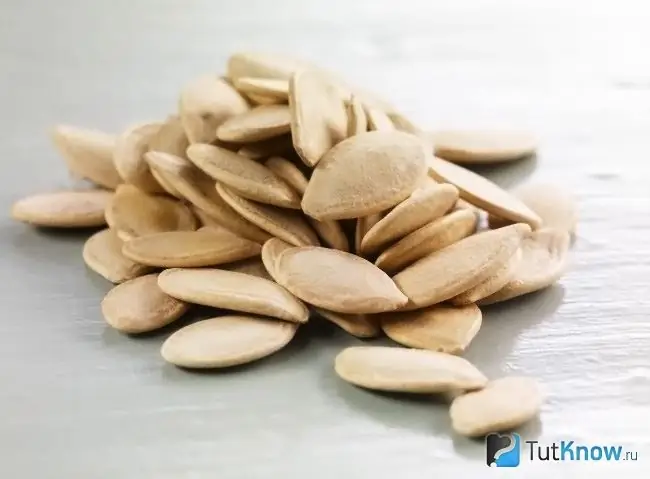
Pumpkin seeds
are very beneficial due to their high-quality edible oil content. Pumpkin seeds, ground with honey, are one of the oldest anthelmintics.
For prostatitis, dried pumpkin seeds will be very useful, which at the very beginning of the disease is recommended to be eaten on an empty stomach in the morning and evening for 20-30 seeds.
Pumpkin seeds are also high in zinc. Therefore, they will be useful for oily dandruff, seborrhea, acne.
Harm
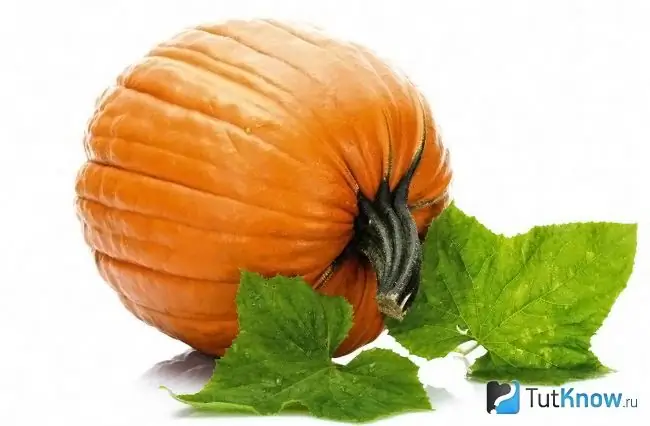
The harm from eating pumpkin is much less than its beneficial properties, which proves its high nutritional, medicinal and dietary value. However, it should not be used for diabetes (due to the high content of carbohydrates and sugars), as well as stomach and duodenal ulcers.
Pumpkin seeds should not be overused either, as they contain a lot of salicylic acid. In case of overeating, inflammatory processes of the stomach lining - gastritis can occur.
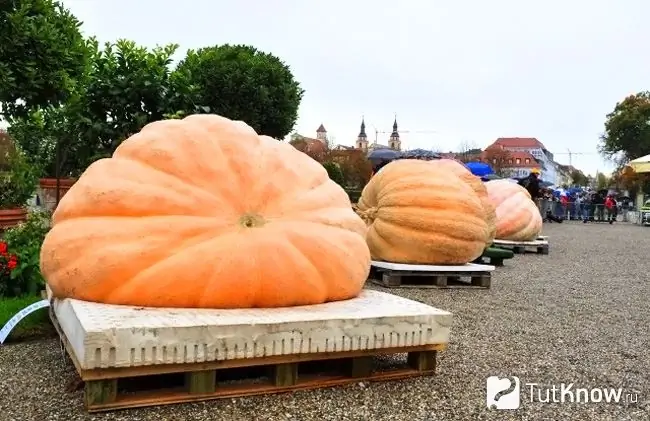
Pumpkins come in very large sizes, with a world record weighing over 2,009 pounds (over 1 tonne).






